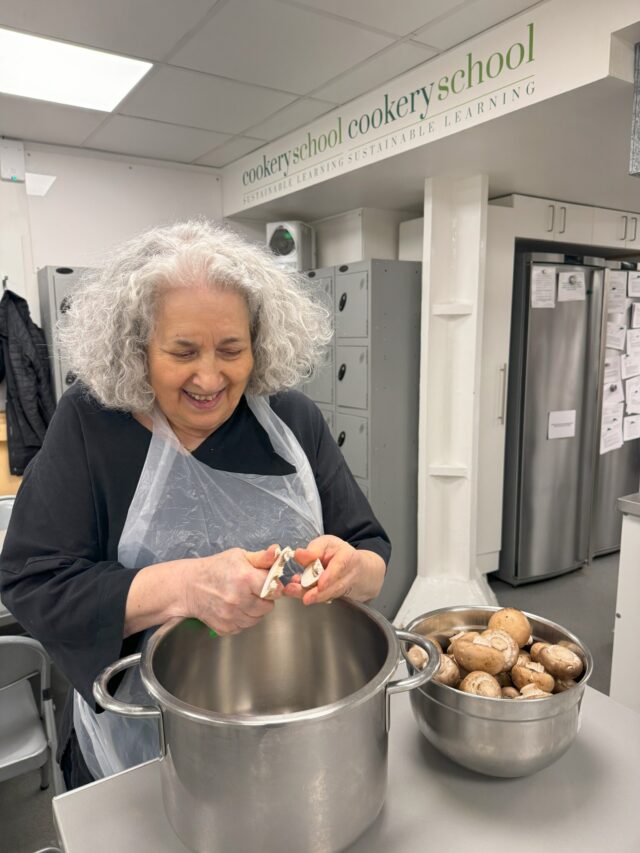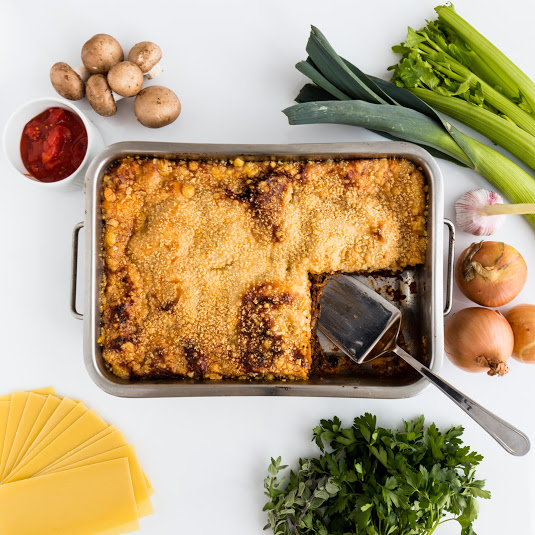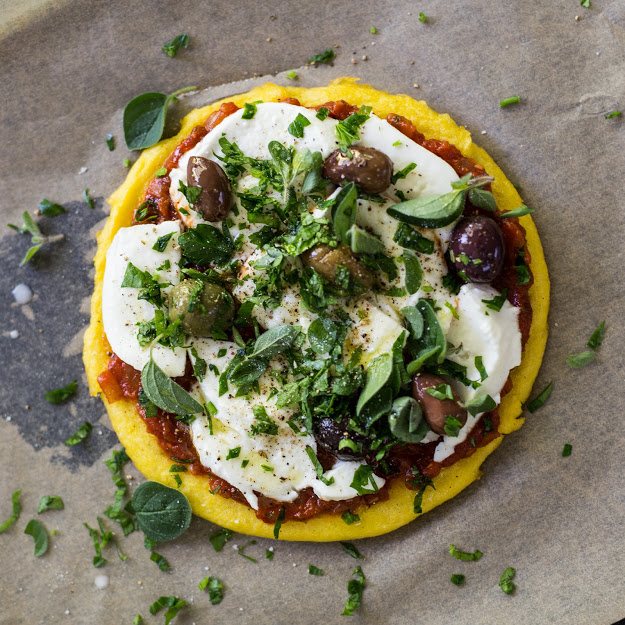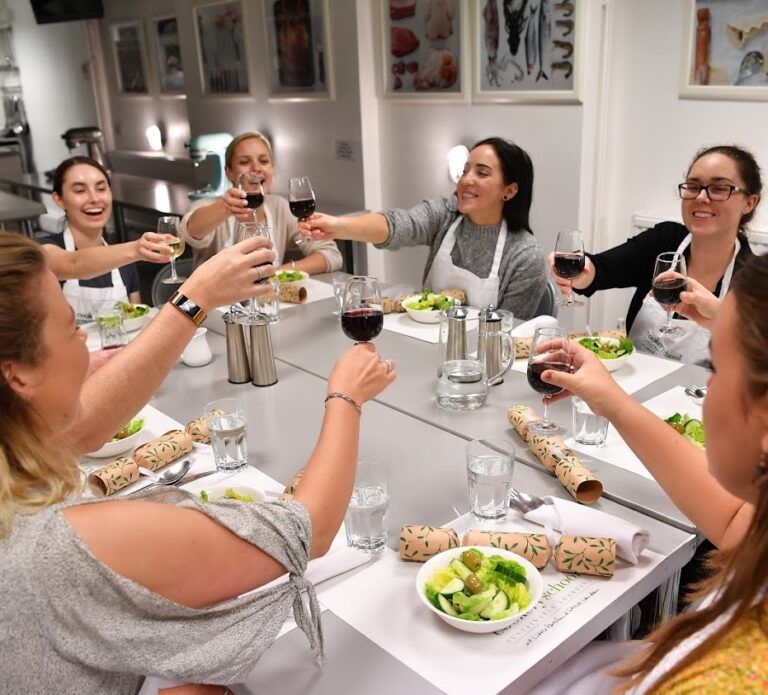Food Talks: Chocolate – The Good, The Bad & The Ugly Review
Chocolate: The Good, The Bad & The Ugly. If you wanted an experience of all sides of the chocolate industry – our second Conversations Around The Cookery School Table was made for you. We couldn’t have wished for a better panel of experts to cover this topic on 25th March 2024. It ended up becoming a mini convention for the chocolate world as so many of our audience were from The Academy of Chocolate itself.
The evening was an incredible exploration covering The Good: chocolate that has been well sourced containing varying amounts of cocoa solids and other acceptable ingredients; The Bad: chocolate that has very low levels of cocoa solids and is high in sugar and The Ugly: chocolate with issues around deforestation and modern slavery.
First we were treated to some wonderful canapes prepared by our founder Rosalind Rathouse and Millie which all had chocolate at their heart. Two of the canapes were from recipes by two of our expert panel. The chocolate tapanade was from Chantal Coady and the mushrooms and chocolate based on a starter by Paul Young. In the panel itself they both shared insights on what were the best chocolates to cook with – but both agreed that “cooking chocolate” was a thing of the past and as with cooking with wine you should use the best chocolate you can find.
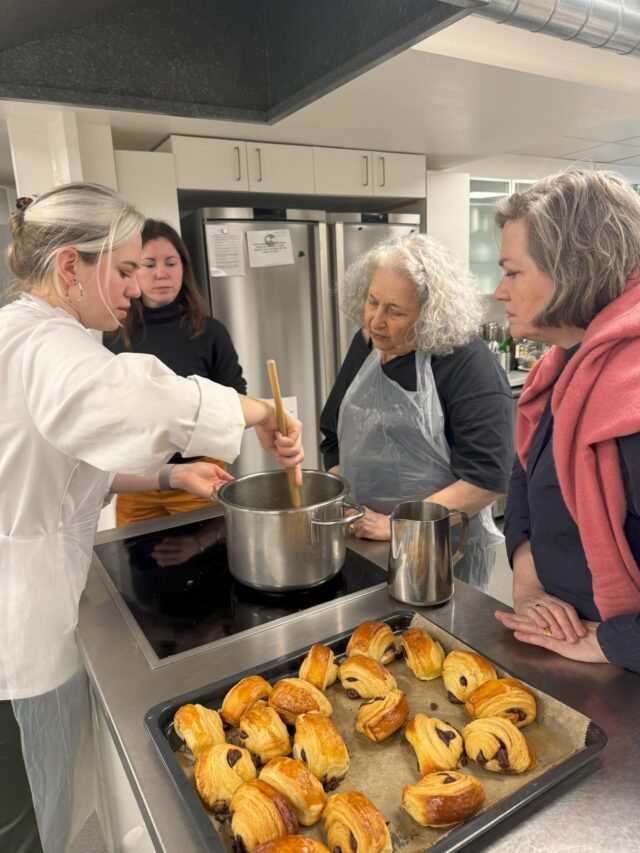
As mentioned at the start, we were delighted that so many from the chocolate industry itself came to see our illustrious panel. Over wine and the canapes, we enjoyed sampling a range of chocolate that our panellists had very kindly bought along.
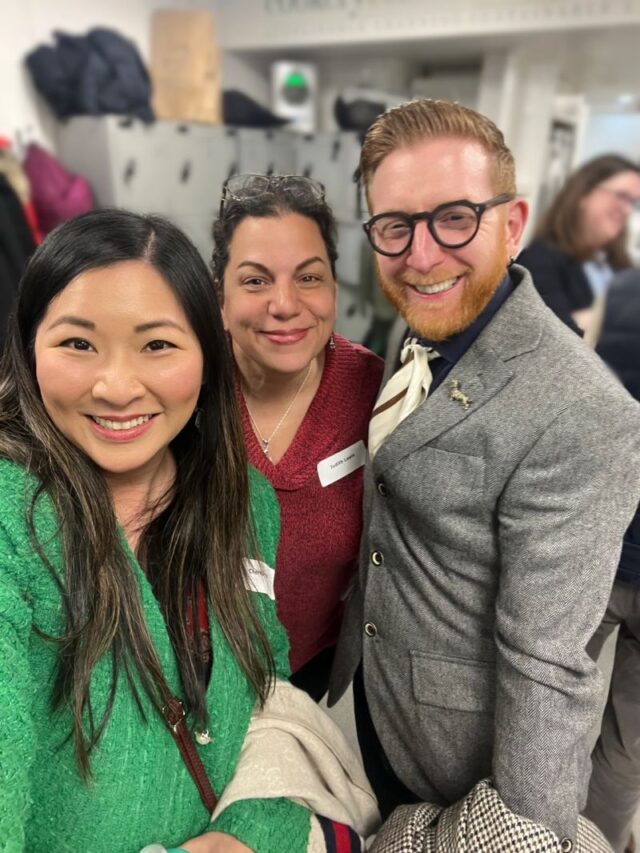
Photo above taken by Cherrie Lo – Board Member & Grand Jury at Academy of Chocolate Awards
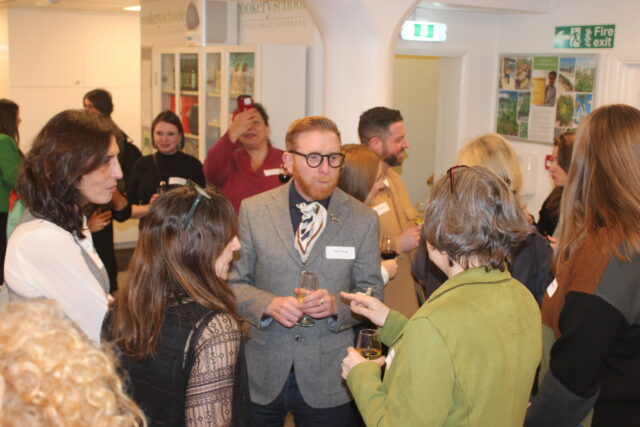
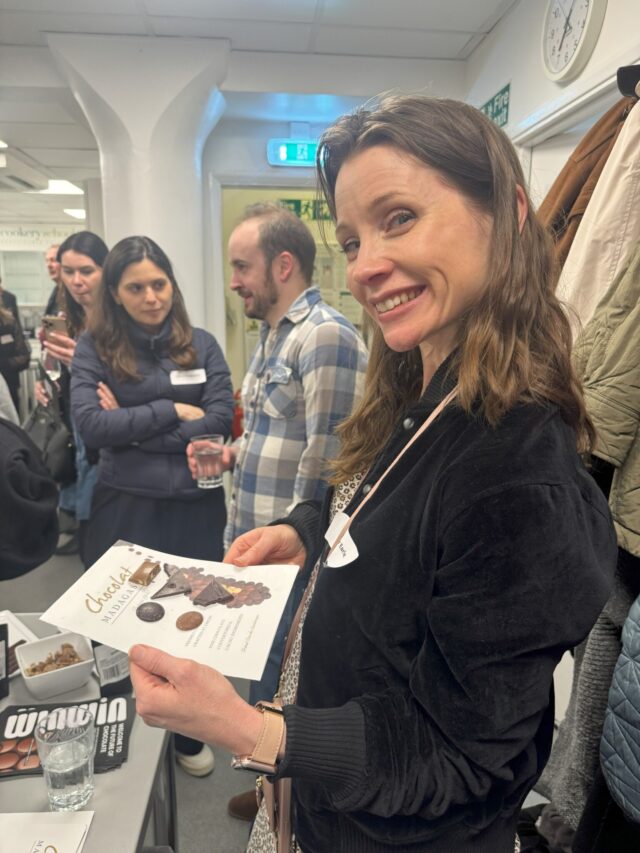
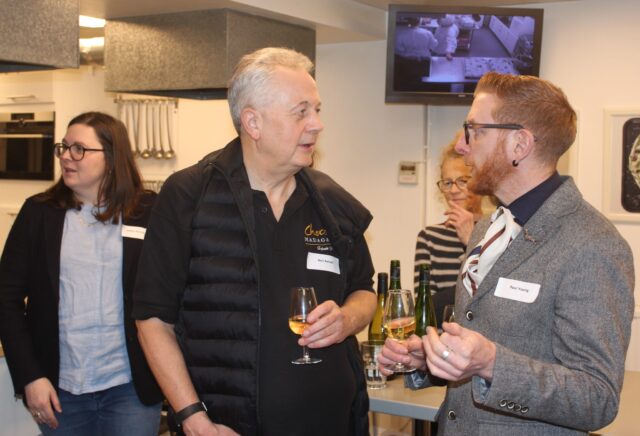
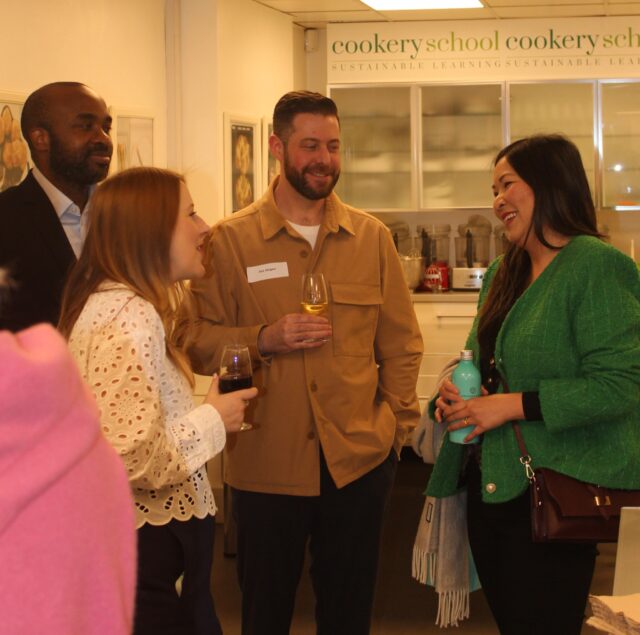
Chantal Coady treated us with some of her famous chocolate Easter Eggs / chocolate bird eggs, and some expertly tempered chocolate, Joanna Brennan, Director & Co-founder of Pump Street Chocolate, bought along her Easter Eggs, Neil Kelsall Marketing Director of Chocolat Madagascar presented a huge range of award-winning chocolate from producers in Madagascar and one of our chocolate teachers Jon Hogan who is Head of Chocolate at WNWN Food Labs presented cocoa free chocolate – Win Win Choc.
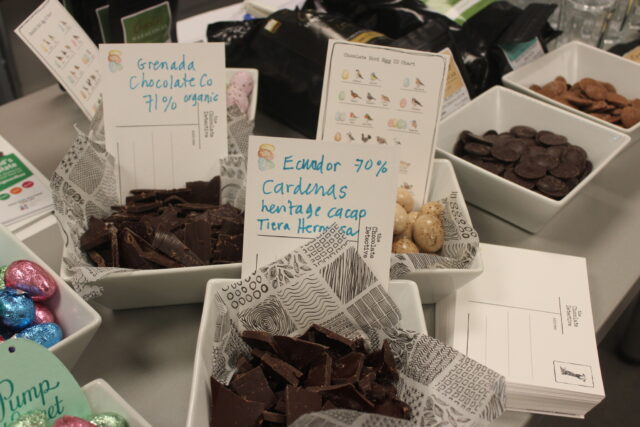
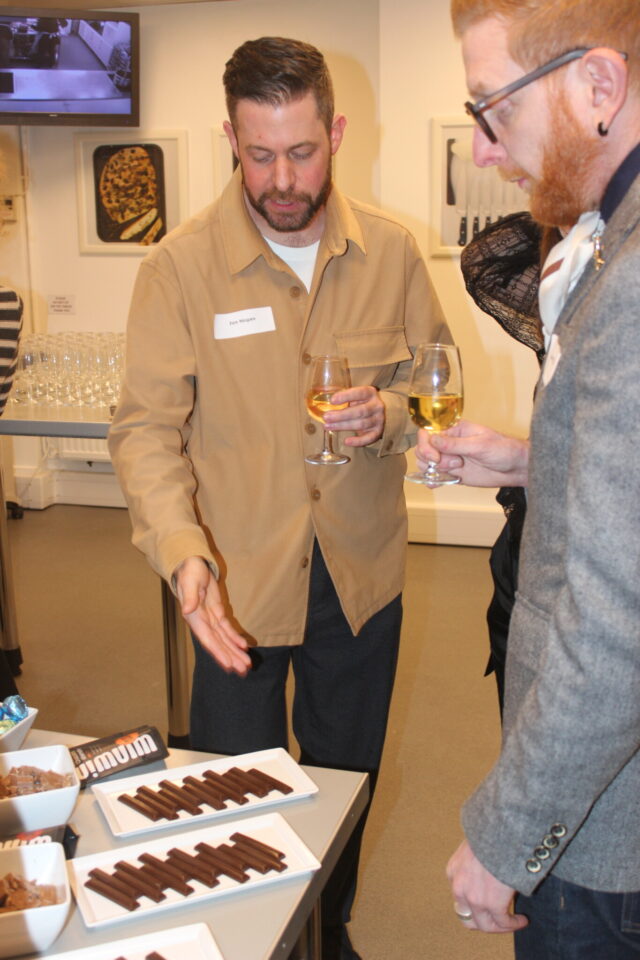
Unlike the other craft chocolate samples with high levels of cocoa solids, Win Win Choc is a much needed cocoa free alternative solution to the mass market “commercial chocolate” industry.

Much of discussion in the panel centred around the chocolate industry’s need to reduce its outsized carbon footprint, and to steer to a brighter future, mitigating forced & child labour and other such malpractices associated with the mass produced chocolate industry.
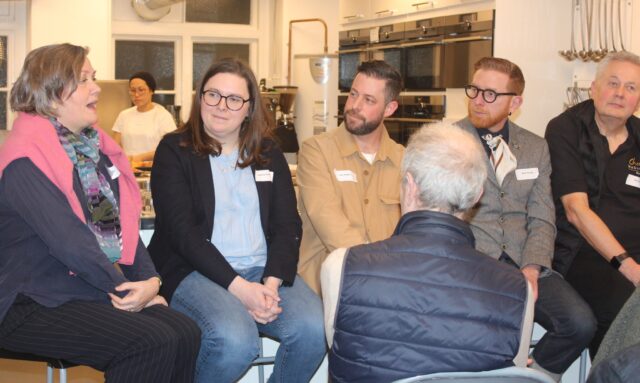
The Good Side of Chocolate
Chantal Coady has been pivotal in changing the UK chocolate scene, weaning people away from sugary confectionery to single estate dark chocolate. She explained how working with the Grenada Chocolate Company inspired a radically different approach: ‘Tree to Bar’, adding value all the way back to the place where it grows. In 2021 Chantal launched The Chocolate Detective, a business that works with cocoa farmers in Grenada to highlight sustainable chocolate. Chantal is the first person to be awarded an OBE for “Services to Chocolate Making”.
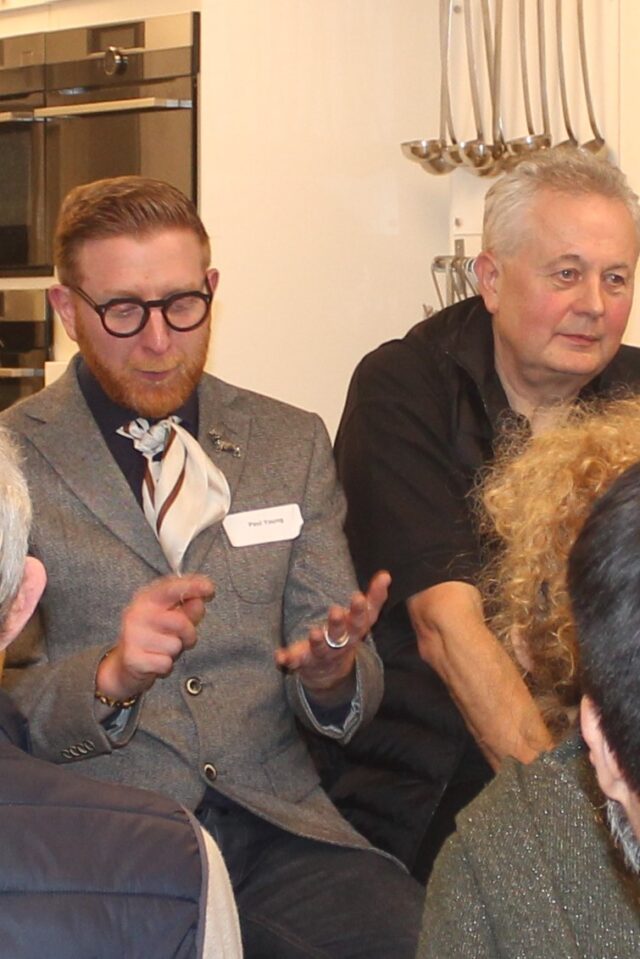
Paul Young, is one of the UK’s best known chocolatiers and after working as Head Pâtissier for Marco Pierre White, he had ambitions to start a first rate chocolate business, he did this and has a very distinguished and award-winning career. He shared that the current economics of the chocolate world make it difficult to go mass market and remain sustainable.
His passion and creativity is legendary but because he has always sourced chocolate from areas where modern slavery is not prevalent, “good” chocolate is much more expensive than the mass brands the public is used to. “You are never going to become a millionaire by making or selling ‘good’ chocolate” he said.
He remains committed to sourcing from sustainable chocolate growers and shared that he is starting to host new “Adventures in Chocolate” classes and talks from his new home in Whitby, Yorkshire. He said “We will explore different origins and percentages of chocolate. I will be teaching how to appreciate and enjoy the complexities of bean to bar fine chocolate from UK producers.”
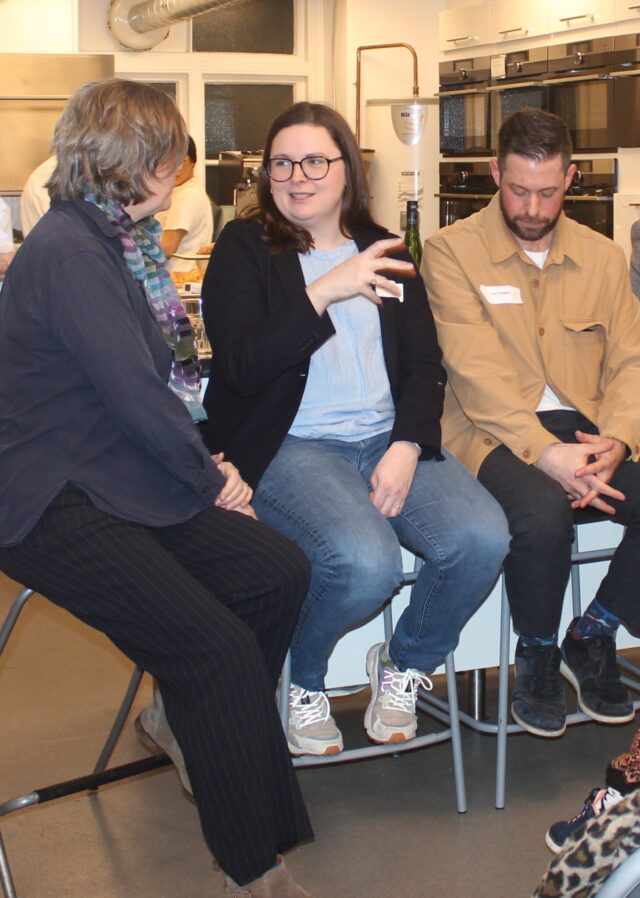
Joanna Brennan is the Director & Co-founder of Pump Street Chocolate. After mastering naturally-leavened bread, at Pump Street Bakery, an award-winning bakery in the village of Orford on Suffolk’s Heritage Coast, Joanna and her father Chris ventured into making craft chocolate from beans imported directly from single estates and cooperatives around the world.
To Joanna, “craft chocolate” describes the making of chocolate on a smaller scale than we have been accustomed to post 20th century food industrialisation. It usually connotes a process that involves a lot of skill on the part of the maker, made by hand or small batches. Another term that is used almost interchangeably is “bean to bar”.
In reality, any definition of “craft chocolate” remains fluid. There is no widely agreed-upon understanding of what it entails, and different craft chocolate makers have differing opinions on what it truly encompasses. This was very true of our panel and led to a fascinating discussion on what “good” chocolate is all about.
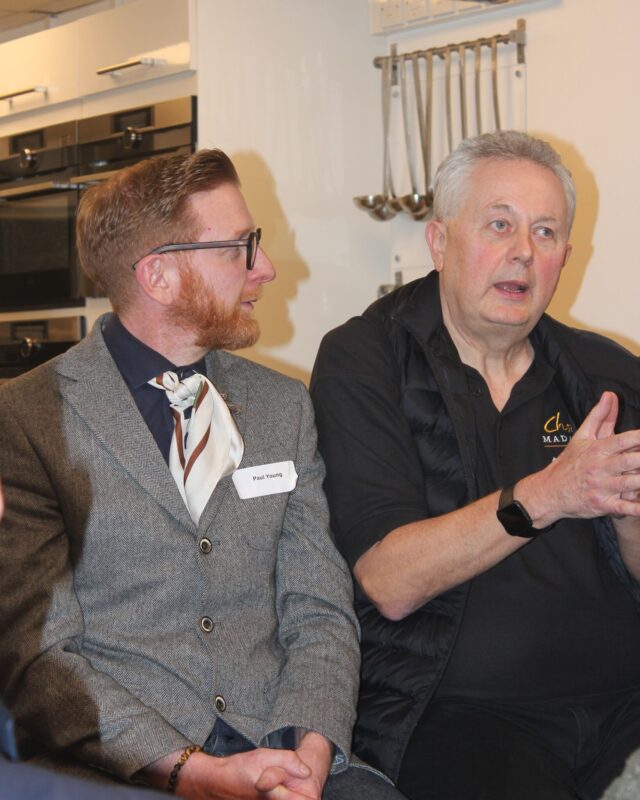
Both Neil Kelsall Marketing Director of Chocolat Madagascar and Dr Michael Odijie of UCL who studies modern slavery in relation to cocoa & chocolate are not chocolate makers but brought a great insight into the “ugly” side of chocolate.
Chocolate is still largely consumed outside of cocoa growing regions, and people who grow cocoa are largely underpaid and undervalued. The panel discussed how their importance in the production of chocolate is underplayed and the value in the chocolate chain largely stays in the hands of the middlemen, the maker and the retailer, rather than the growers themselves.
Unlike many other large chocolate manufacturers Neil explained how Chocolat Madagascar wanted to make it all in the country of origin – in Madagascar, with the Malagasy people. The whole process – farming, fermentation, drying, roasting, winnowing, grinding, mixing, refining, conching, tempering, moulding, packaging, and transportation.
He said “We want to help the people trade their way out of poverty rather than accept charity. If they acquire the skills and equipment they can make quality products that we want to buy whilst satisfying the stakeholders.”
Neil explained how cocoa is a chemically complex product containing over 400 compounds, and Madagascar produces some of the finest in the world. Cultivated in particular are the trinitario and criollo types which are the base ingredient of the best chocolate as they lack the bitter taste of cheaper cocoa.
We learnt that this is an added benefit for chocolate lovers as the flavour is enhanced by production on the country’s own shores. Crafting this cocoa into chocolate straight after harvest in Madagascar means that all of the wonderful complex flavours are trapped at source, with much less time to degrade in comparison to long-distance shipping to factories in Europe.
At the Academy of Chocolate Awards, Chocolate Madagascar were delighted to be World winners of the prestigious Golden Bean Award in 2017 & 2020 and the Shining Bright Award 2020. They were also voted highly ethical by Ethical Consumer magazine.
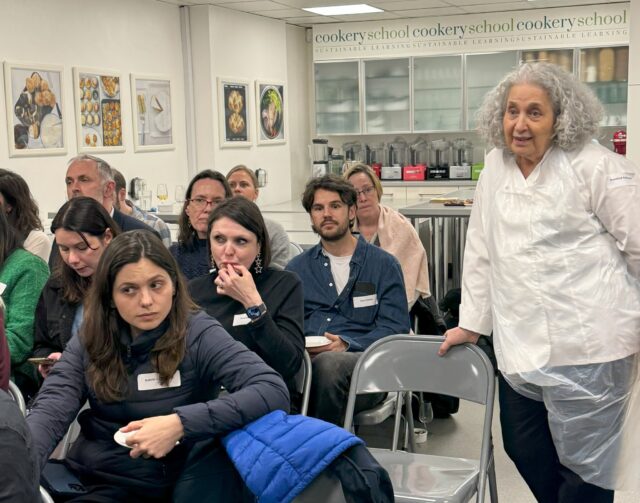
The Bad and Ugly side of chocolate
This area lead to a number of questions from our audience including our founder Rosalind Rathouse who is hugely concerned about sustainability and child labour in the production of chocolate.
The modern literature on child slavery in the West African cocoa sector, has been led to a great extent by nongovernmental organizations (NGOs) and activists. It has not properly engaged with the history or evolution of cocoa farming or its link to modern child slavery. So we were delighted to have Dr Michael Odijie of UCL on our panel.
He said “research suggests that child labour in cocoa farming in West Africa is still rampant. Although trafficking is difficult to study, media reports suggest that children are still being trafficked into cocoa farms in large numbers.” His research has also shown there is enough evidence to suggest that the use of child labour (and child trafficking) is particularly common among cocoa farmers in Côte d’Ivoire.
We asked Dr Michael about how the near shutdown of two cocoa processing plants responsible for 60% of global production could impact the prices of chocolate and the livelihood of farmers. He said “At the farm level, although the rise in prices may initially appear beneficial to farmers, the reality is not straightforward. A decrease in output leads to fewer harvests on average, which means that, overall, farmers are not earning more.”
“Major African processing facilities in Côte d’Ivoire and Ghana have either ceased operations or reduced their processing capacity because they cannot afford to purchase beans. This likely means that chocolate prices worldwide will surge.”

The panel also explored that the high demand for cocoa has resulted in mass deforestation and significant carbon emissions, issues – both of these areas are likely to worsen due to climate change. Will chocolate producers eventually turn to companies like WIN WIN and their cocoa free chocolate?
Chocolate has a higher carbon footprint than most meat (per kg) and cocoa farming is causing severe deforestation in the areas where it is grown. Jon Hogan said that alternative chocolates like WIN WIN cause 80% less emissions than their cacao-based counterparts.
He said “I have had the absolute pleasure to work with WIN WIN and delve into the research and development of an exciting, more sustainable and just as delicious alternative chocolate that is cocoa-free and Palm free.
“In the design approach in the development we must re-define what chocolate is, so a deeper, more zoomed in understanding of what each element, component, compound and ingredient is doing on a functional level can be adopted.”
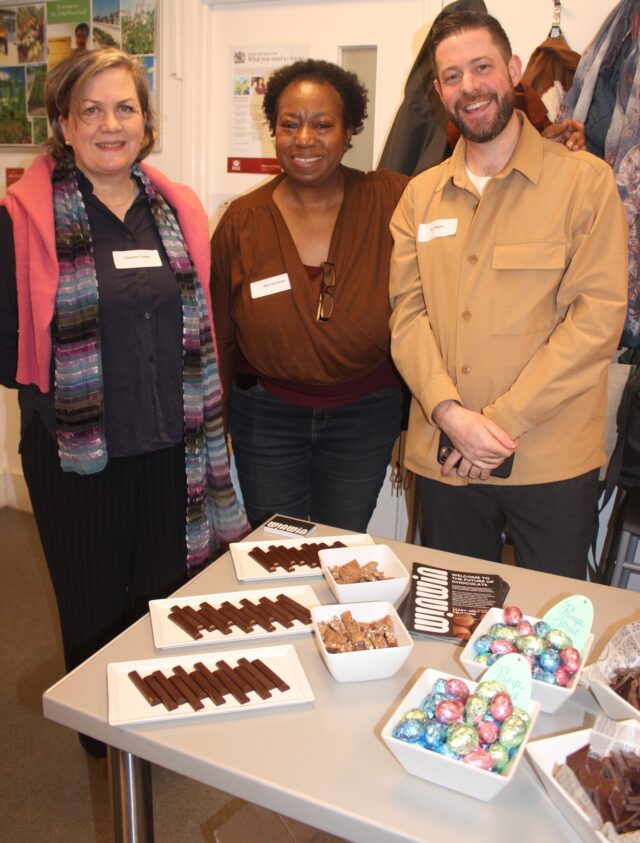
Our event was chaired by Mex Ibrahim – Co-Founder of Women In The Food Industry who also sits on the Editorial Board of New Food Magazine. She said “What a hugely passionate, hugely creative and hugely educational panel we had at Cookery School tonight. I have learnt so much more about chocolate than I would have thought possible in just a few hours.”
A huge thank you to the panel, and to everyone who came along to this chocolate talk and tasting.
Next up with Conversations Around The Cookery School Table, we will running an event with The Soil Association on Monday April 29th. Watch this space for more details.
Category
Events
